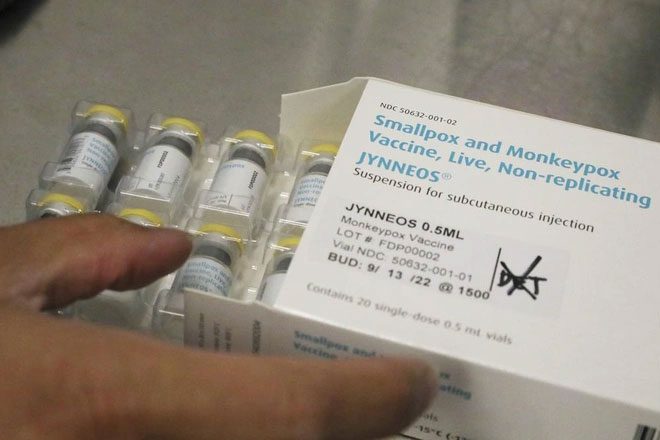On August 12, the World Health Organization (WHO) announced that they are hosting a forum to discuss renaming monkeypox, following concerns that the current name may carry offensive or racially discriminatory implications.
According to a statement on August 12, the WHO has renamed two branches of the virus using Roman numerals instead of geographical locations to avoid stigma, as reported by AP.
The monkeypox virus group from the Congo Basin (Central Africa) will now be referred to as Clade One or I, while the group from West Africa will be called Clade Two or II.

Jynneos vaccine for monkeypox in San Francisco, USA on July 29. (Photo: AP).
The WHO mentioned that they also opened a forum for the public to suggest new names for monkeypox, but did not specify when the new name will be announced, according to AP.
The United Nations agency stated that the decision to rename was made following a meeting of scientists this week and aligns with best practices in disease naming.
They believe that renaming aims to “avoid offending any cultural, social, national, regional, professional, or ethnic group and to minimize any negative impact on trade, travel, tourism, or animal welfare.”
Many other diseases, including Japanese encephalitis, Marburg virus, Spanish flu, and Middle East Respiratory Syndrome (MERS), have been named after the geographical areas where the virus was first identified or based on the virus’s origin. The WHO has not publicly proposed renaming these diseases.
Monkeypox was first named in 1958.
Since May, the world has reported over 31,000 cases of monkeypox, with the majority of cases occurring outside Africa. Monkeypox had previously been endemic in Central and West Africa for many decades.
In July, the WHO declared monkeypox a global health emergency. With limited vaccine supplies worldwide, authorities are racing to contain monkeypox before it becomes a new epidemic.

















































